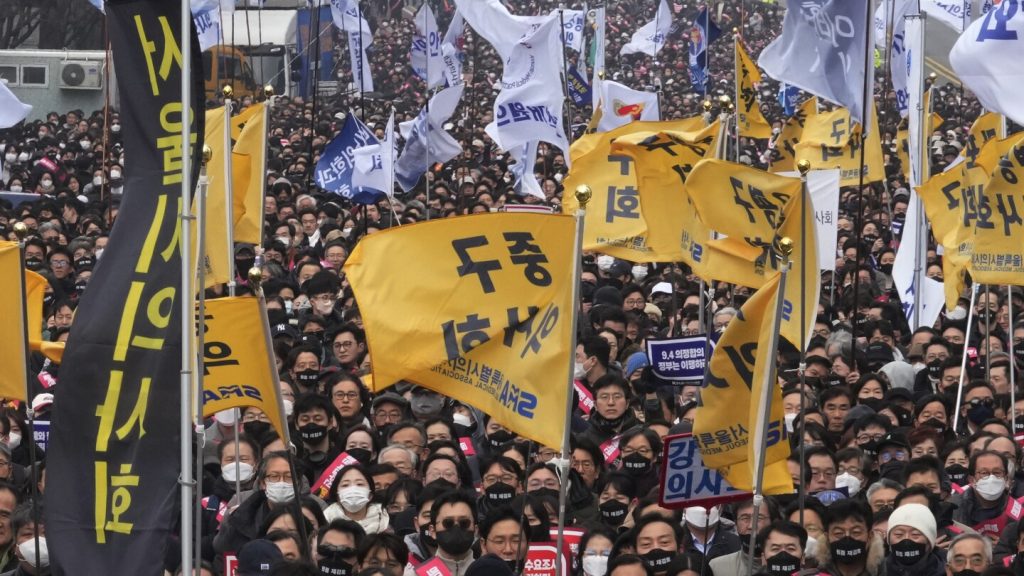The South Korean police have searched the office of Lim Hyun-taek, the incoming leader of the Korean Medical Association, amidst accusations that he incited the ongoing walkouts by medical interns and residents. This move could potentially prolong the strikes, which have already caused delays and cancellations of medical treatments at major hospitals. Lim is one of five officials of the association who are under police investigation for their alleged involvement in the strikes, with two having already had their medical licenses suspended by health authorities in mid-April. Lim’s office has criticized the raid as politically motivated and questioned the government’s sincerity in offering dialogue to end the strikes.
The strikes began in February when more than 10,000 interns and residents protested against the government’s plan to increase the country’s medical school enrollment quota by 2,000 starting next year. In response to growing public pressure, the government has offered to adjust the plan by allowing universities to decide whether to reduce planned admissions by up to 50% next year. However, Lim and other doctors are demanding a complete scrapping of the enrollment hike plan, refusing to accept any increase in the number of medical students. They are also calling for the dismissal of top officials involved in formulating the admissions plan. The government argues that the plan is necessary to address the country’s aging population and low doctor-to-population ratio, but doctors fear that an abrupt increase in students could negatively impact medical services.
Amidst concerns about a potential shortage of doctors and the impact of the strikes on patient care, senior doctors at university hospitals have threatened to resign in support of the striking junior doctors. This move has raised further alarm about the medical impasse, with the associations of senior doctors deciding to allow them a day off every week due to overwork caused by the departure of their junior colleagues. However, a senior Health Ministry official has described the senior doctors’ actions as “regrettable” and urged them not to abandon their patients. Despite the threats of resignation, the government has not found any hospitals planning to accept the offers from senior doctors.
The situation has escalated with both sides standing firm on their demands, leading to a deadlock in negotiations. While the government has shown willingness to adjust its enrollment plan, doctors are adamant about their stance against any increase in the number of medical students. The ongoing strikes have not only affected patient care but have also created tensions within the medical community, with senior doctors expressing solidarity with their junior colleagues. The outcome of this impasse remains uncertain, as both parties continue to push for their respective positions, raising concerns about the future of healthcare in South Korea.


